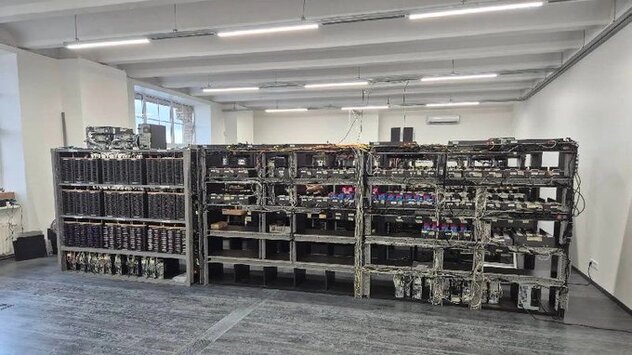Alerts

A massive SIM farm network powering 49 million fake accounts has been dismantled following a major Europol operation spanning four countries. Law enforcement officials arrested seven people and seized thousands of SIM cards and servers used to create fake profiles and commit telecom fraud.
The coordinated action, known as Operation SIMCARTEL, targeted criminal groups that exploited SIM-box technology to spoof calls, bypass telecom fees, and fuel fake online activity across Europe. Authorities estimate that financial losses from related scams reached several million euros — with over €4.5 million recorded in Austria alone.
The large-scale operation took place on October 10, led by police forces from Austria, Estonia, Finland, and Latvia in collaboration with Europol. Officers conducted 26 raids, arresting suspects and confiscating an enormous cache of hardware — including 1,200 SIM-box devices, 40,000 SIM cards, and five servers housing critical infrastructure.
The seized equipment was used to facilitate an industrial-scale scam network that provided fake phone numbers to criminals worldwide. These numbers were then used to verify bogus social media accounts, online banking logins, and digital services — creating a shadow ecosystem of 49 million fraudulent profiles.
A SIM-box is a hardware device that can hold hundreds or even thousands of SIM cards. It allows operators to route international calls through local networks, disguising the origin of the call. While this setup can have legitimate commercial uses, it’s often exploited by criminals to mask their operations and evade detection.
By using SIM-boxes, fraudsters make international calls appear as local, avoid telecom fees, and automate the creation of online accounts at massive scale. The same technology can also be used for phishing, smishing, and other cybercrimes.
Authorities revealed that the dismantled network was among the largest of its kind ever uncovered in Europe. Its servers were capable of processing millions of SMS messages daily, providing access to verification codes used in setting up fake profiles and bypassing two-factor authentication systems.
This global-scale operation has disrupted an entire underground economy built around phone-based identity spoofing. Experts believe that such networks directly contribute to online scams, misinformation campaigns, and large-scale data theft.
Europol’s takedown sends a clear signal to cybercriminals: mass SIM farming operations are no longer safe havens. The operation not only removed dangerous infrastructure from circulation but also highlighted the growing sophistication of international cybercrime.
However, authorities warn that these operations can quickly reappear if not continuously monitored. Criminal groups are becoming more adept at hiding their infrastructure, renting virtual numbers, and using automation tools to evade new security systems.
Both companies and individual users can take proactive steps to protect themselves from SIM-related fraud:
Strengthen verification systems beyond SMS, using app-based or hardware authentication.
Implement AI-driven systems to detect mass account creation patterns.
Share threat indicators and suspicious data with cybersecurity networks.
Avoid relying solely on SMS for two-factor authentication.
Use authenticator apps or security keys where possible.
Report fake accounts or suspicious verification attempts immediately.
The dismantling of this massive SIM farm network powering 49 million fake accounts underscores how critical international cooperation has become in the fight against cyber-enabled fraud. As technology evolves, law enforcement agencies must continuously adapt to new threats that merge physical telecom abuse with digital deception.
This case also highlights a growing need for social platforms, telecom providers, and regulators to work together — ensuring identity systems remain secure in an era where digital impersonation is easier than ever.
Europol’s decisive action has struck a major blow against one of Europe’s largest SIM-farming rings. Yet, it’s also a reminder that the fight against cyber-enabled identity fraud is far from over. Continuous monitoring, smarter verification technologies, and strong collaboration between global agencies will be key to preventing similar networks from re-emerging.
𝗦𝗲𝗺𝗮𝘀𝗼𝗰𝗶𝗮𝗹 𝗶𝘀 𝘄𝗵𝗲𝗿𝗲 𝗿𝗲𝗮𝗹 𝗽𝗲𝗼𝗽𝗹𝗲 𝗰𝗼𝗻𝗻𝗲𝗰𝘁, 𝗴𝗿𝗼𝘄, 𝗮𝗻𝗱 𝗯𝗲𝗹𝗼𝗻𝗴. We’re more than just a social platform — from jobs and blogs to events and daily chats, we bring people and ideas together in one simple, meaningful space.
